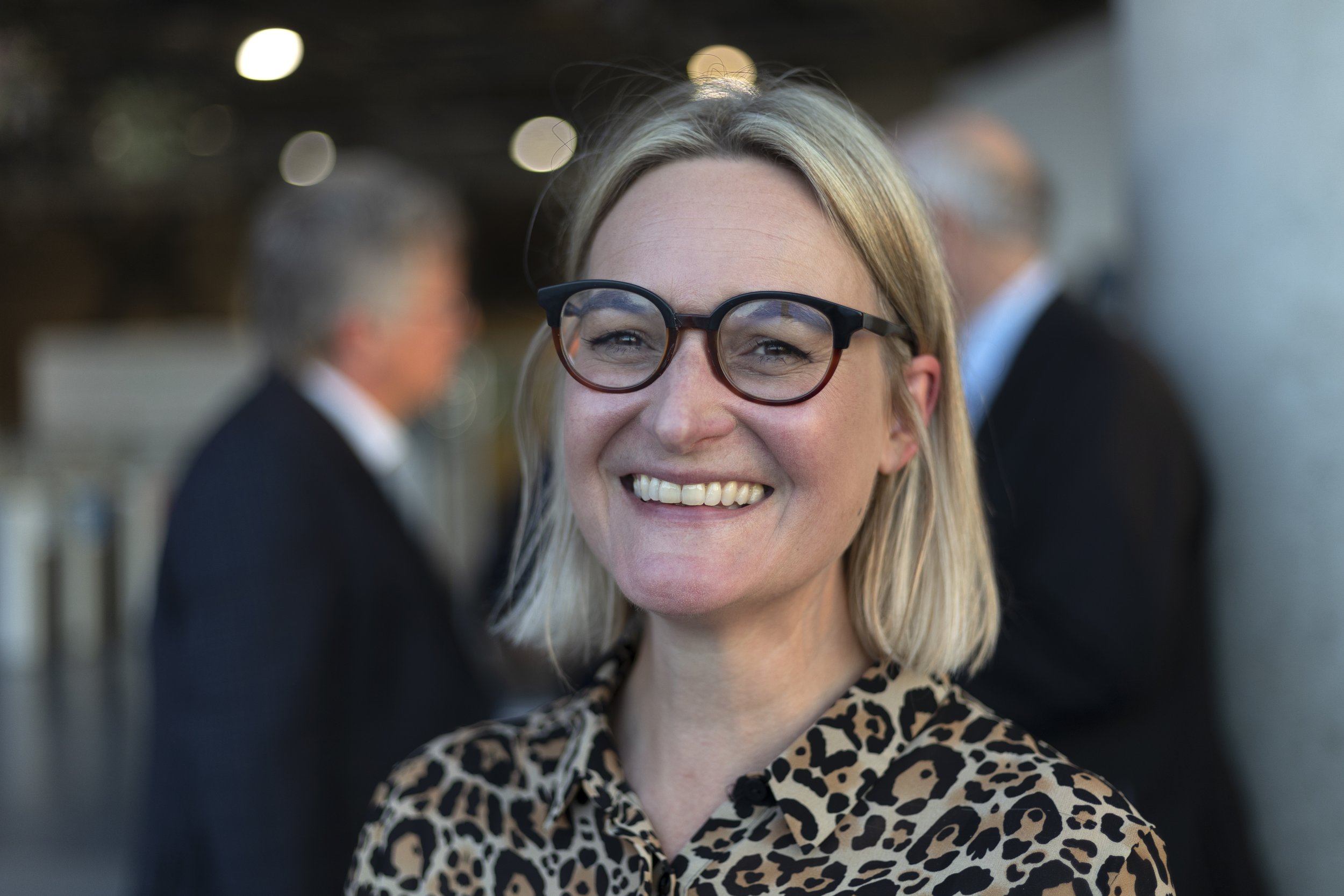CA4SH Policy Webinar: Creating an Enabling Environment for Soil Health Post-COP28
Since launching at the UN Food Systems Summit in 2021, the Coalition of Action 4 Soil Health (CA4SH) has been laser-focused on getting soil health included in the climate agenda at the UN Climate Conference (UNFCCC), and policy spaces.
We now find ourselves in a pivotal moment in the policy sphere where, after advocating and communicating the crucial role of soil health in underpinning food systems transformation and reaching climate goals, we successfully contributed to the COP28 UAE Declaration on Sustainable Agriculture, Resilient Food Systems and Climate Action, and the Koronivia joint work on agriculture from COP27.
Now that soil health is on the agenda, we want to see its presence reinforced and intensified, and part of this is scaling the conversation to policy spaces at all levels.
“Maximize the climate and environmental benefits -while containing and reducing harmful impacts - associated with agriculture and food systems by conserving, protecting and restoring land and natural ecosystems, enhancing soil health, and biodiversity, and shifting from higher greenhouse gas-emitting practices to more sustainable production and consumption approaches, including by reducing food loss and waste and promoting sustainable aquatic blue foods”
CA4SH is a multi-stakeholder partnership of member states, the private sector, research institutions, civil society, farmer organisations, multilateral organisations, NGOs, and more. Drawing on this wealth of knowledge, we organized the first installation of our 2024 Webinar Series: The Road Ahead for Soil Health Action.
The Policy webinar sought to connect soil policy advocates from across sectors and scales to share their experiences in integrating soil health into policy frameworks and lay out a roadmap for how advocates can successfully engage with governments to make sure soil doesn’t get left out.
The session was moderated by Dr Leigh Winowiecki (CA4SH Co-Lead and CIFOR-ICRAF Soil and Land Health Global Research Lead) who shared highlights on the strategic direction of CA4SH, as well as some of our core work as a Coalition. Leigh’s intervention included our flagship initiative the Soil Health Resolution, which offers draft text that can be adapted and adopted in climate policy.
Keynote Speaker, Dr Manyewu Mutamba (Head of Agriculture, African Union Development Agency-NEPAD) discussed how 2024 is a critical year for soil health in Africa. Not only are Member States becoming increasingly aware of the importance of scaling soil health on the ground. “If farmers don’t do anything then we are not going to make progress,” he stressed. “What are the mechanisms we can put in place to make sure farmers can invest in soil health?” Despite readiness and willingness, farmers can not make this transition alone; we need meaningful, actionable proposals to governments to take advantage of this time when policymakers are listening.
The webinar also featured a panel discussion with experts from across the CA4SH membership, who shared their unique perspectives on operating in policy spaces and creating an enabling environment for policy change.
Panellist Remarks
Dr Jack Hannam,
President, British Society of Soil Science
BSSS contributed a response to the British Government’s Soil Health Inquiry last year, and is active in advocating for soil health policy in the unique window for reform presented by Brexit.
Jack Hannam was recently invited to speak to The Standing Senate Committee on Agriculture and Forestry at the Senate of Canada | Sénat du Canada while they investigated what is working in different policy landscapes.
Jack’s take home advice for advocacy is to be multilateral, and invite policymakers to the room when discussing soil health, so they can learn from the people who know it best.
Prof Pamela Mbabazi,
Executive Chairperson, National Planning Authority (NPA) of Uganda
Ugandan soils have the full potential to sustain the population, but they are rapidly being degraded and not meeting this goal. Pamela Mbabazi stressed the need to be deliberate in how the country accentuates and protects soil health, because “we don’t have the luxury of getting it wrong” amidst rapid population growth.
With this critical window in mind, Pamela called for robust benchmarking and quantifiable and measurable targets to help policy makers make informed, evidence-based decisions.
Assan N’gombe,
Resilience Officer, Alliance for a Green Revolution in Africa
AGRA has several years of experience working to drive resilience into policy and programmes with accurate and convincing data behind it. This has involved soil health testing and translating dialogue into policy action.
Assan N’gombe’s advice for advocates in communicating data into policy is to be context specific and participatory.
His call to policy makers is that “it is no longer enough to say ‘I agree with the science, I agree with the evidence;’” there must be a budget for soil health. That is the new feature of political will.
Mateusz Ciasnocha,
Farmer, Ciasnocha Family Farms & CEO, European Carbon Farmers
Mateusz Ciasnocha is a family farmer in his native Poland, and a dedicated advocate for stakeholder action in driving policy change. He has been extensively involved in driving the EU Mission Soil Manifesto, which is underpinned by the Nati00ns decision-making support tool and network.
In Europe, there is the Horizon Europe Budget which can help scale healthy soil practices, but this necessitates connecting the dots between evidence and needs. Mateusz is engaged with a network of Living Labs and demonstration farms that evidence healthy soil practices and options as part of Mission Soil. He stressed the importance of really guiding policy makers to ensure that soil is not included as a one-off or gets lost in the policy landscape.
Haseeb Bakhtary,
Senior Consultant, Climate Focus
Food systems are responsible for over ⅓ of global carbon emissions, so there is incredible potential to make them part of the solution, rather than the problem for combatting the climate crisis.
To address this, Haseeb Bakhtary and Climate Focus engaged in an ambitious target alongside WWF to develop a tool that is useful to policy makers to integrate a food systems approach to the Nationally Determined Contributions (NDCs). The resulting output is Food Forward NDCs, which presents solutions, relevant tools, tradeoffs and potential challenges to help policymakers make informed decisions.
The tool was launched last week at the sixth session of the UN Environment Agency (UNEA-6) and will now undergo continuous feedback and development to make sure it remains relevant and timely, and to develop case studies of its implementation.
Genna Tesdall,
Director, Young Professionals for Agricultural Development
The definition of what constitutes ‘youth’ changes everywhere you look, but Genna Tesdall shared that what it really boils down to is roles and relationships with others. This is important to remember, considering that a key reason, she shared, that youth are less involved in agricultural and policy action is due to a lack of perceived agency. But this doesn’t have to be the case!
As a youth group, YPARD supports members through capacity building and advocacy work to help them build confidence and skills in policy spaces. An example of how they do this is by sending youth representatives to COP28 or other fora. Youth have meaningful and creative ideas that need to be heard - so provide opportunities for youth to get involved!
Call to Action
The session was closed with calls to action from the speakers which centered participatory, multi stakeholder action. Manyewu Mutamba called on all of us to not waste our opportunity to tackle the climate crisis. “This year is the year for soil health, let’s ride the wave for the highest level of commitment.”
“Visit a farmer or other land manager, if you are a land manager, tell your story - it is on YOU, policy makers, to follow through on this.”







